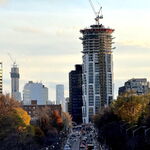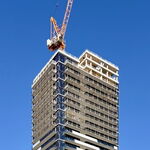MadMax
Active Member
MadMax below are your points:
1) Strong emigration compared to other cities (invalid , immigration can't fuel
prices of RE)
2) Strong Banking System (wrong , I explained it earlier)
3) Relatively Low Unemployment (Low was 1.5 years ago, not anymore)
4) Steady RE appreciation (lol, RE doesn't go down because of "Steady RE appreciation, very much valid point)
5) Low interest rates ( finally you arrived to the ONLY reason why RE prices haven't tanked , yet)
Of course for audience to whom cater Mass Street Media ( who in turn heavily dependent from RE and auto advertisers) the soup of your points is very much valid.
I didn't say immigration fuels prices of re, rather that it has sustained it thus far.
Our banking system was voted number one in the world and other countries are currently analysing and perhaps looking to implement some of our policies in their own countries.
I stated that we have relatively low unemployment and Ontario has been hit hard lately because our economy is heavily based on the manufacturing industry.
As someone stated earlier, our re appreciation has been a steady and continued curve whereas other countries have experienced sharper and quicker movements.
As long as the government doesn't suddenly inflate interest rates as they have in the past, re values should remain steady as people who go to re-new after their fixed term are not shocked and awed when they go to re-finance.
Shtopor....you should love your country as I do and be thankful that you live in a place that is able to withstand the current economic downturn better than most other countries throught the world. Rather you choose to only focus on the negatives. We're not perfect and we have much to improve, but slowly and surely we'll get there. I guess we are just two different people....I like to focus on the positives while some people only dole out negatives regardless of what is really happening around them!
Last edited:






